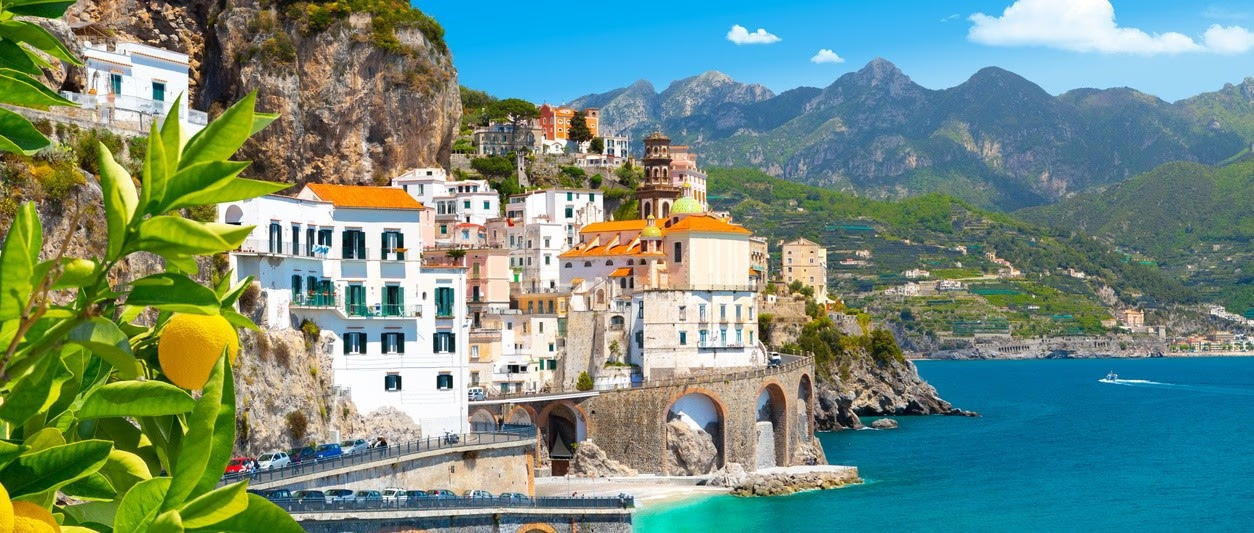
Do Blue Zones hold the secrets to a longer life?
Peer reviewed by Dr Krishna Vakharia, MRCGPLast updated by Amberley DavisLast updated 19 Oct 2023
Autumn may be growing colder in the UK, but there's nothing stopping us looking to warmer climates and asking why their inhabitants are living longer lives.
No one can live forever or control what happens in the course of a life, but in some pockets of the world, the chances of living for longer are significantly higher. These places are known as Blue Zones, and there's a lot we can learn from their inhabitants.
In this article:
Continue reading below
What are Blue Zones?
Have you ever wondered whether it's your DNA or your lifestyle that has the greatest influence over how long you live for? In 1996, the Danish Twin Study found that only around 20% of how long you live is determined by your genes1. This means a whopping 80% is down to your lifestyle habits.
Of course, even if you lead the healthiest lifestyle on earth, this can only take you so far - those who make it to 100 years old have pretty amazing genes. However, making changes to your lifestyle could influence whether you make it to your early 90s2.
The best example we have of this effect are Blue Zones - specific regions in the world that are home to some of the world's oldest people and boast exceptionally low rates of chronic (long-term) illness compared to anywhere else.
Where are the Blue Zones?
Blue Zone is a non-scientific term first used by Dan Buettner and his team of geographic explorers in 2004. They identified and drew blue circles on a map around five places in the world where people consistently reached 100 years of age.
In his book, The Blue Zones, Buettner describes these five areas3:
Ogliastra, Sardinia, Italy - home to the world's highest concentration of male centenarians.
Nicoya Peninsula, Costa Rica - lowest rate of middle-age mortality and second highest concentration of male centenarians.
Icaria, Greece - one of the world’s lowest rates of dementia and middle-age mortality.
Okinawa, Japan - highest population of females aged over 70 in the world.
Seventh Day Adventists in California, USA - religious group that lives an average of 10 years more than fellow North Americans.
It's probable that there are more unidentified Blue Zones in the world, but the lifestyle habits of these particular five have been put under a microscope. For example, the 2023 Netflix documentary 'Live to 100: Secrets of the Blue Zones' visits each of these places in turn, to determine the contributing factors to longevity that we can try and emulate in our own environments.
Here's a closer look at the factors we can choose to learn from and adopt:
Continue reading below
The Mediterranean diet
One not-so-well-kept secret of some Blue Zone regions is the Mediterranean diet, also known as the Blue Zone diet. There is no strict definition, but it does describe a set of eating patterns that are proven to promote health and longevity. Registered dietitian Elouise Rice explains:
"A Mediterranean-style diet is often rich in fruit and vegetables as well as whole grains and legumes. There is also moderate consumption of oily fish and other seafood. Olive oil is the main source of fat within the diet. Moreover, red and processed meat, as well as foods high in sugar, are eaten less frequently."
The benefits of the Mediterranean diet are so well established that this eating style has been adapted for several popular diet programmes, including The Fast 800 diet and the MIND diet.
Eating plant-based
There's no need to discard meat completely, but Blue Zone diets - including the Mediterranean diet tend to be predominantly made up of nutrient rich plant-based energy sources that reduce your risk of mortality4. In fact, according to Rice, Blue Zone inhabitants only tend to eat meat around five times per month.
"Following a majority plant-based diet can ensure you are eating a diet high in fibre and low in saturated fat," explains Rice. "A diet high in fibre boasts a multitude of benefits including reduced bowel cancer risk, decreased cholesterol, improved insulin sensitivity, decreased inflammation, and overall improved gut health which can ensure a healthy functioning immune system."
Continue reading below
Eating locally
"When food travels from one side of the world to the other, it is unsurprising that these foods need to be sprayed with pesticides in order to preserve them," says Rice. "But it has been suggested that high consumption of such chemicals may be linked to development of Alzheimer's disease5 and Parkinson's disease6, as well as cancer7."
While research in this area is currently inconclusive, it seems more than a mere coincidence that people living in Blue Zones typically eat plenty of locally sourced produce.
The 80% full rule
Citizens of Okinawa, one of the Blue Zones, reportedly stop eating once they feel 80% full. This technique is less about strict calorie restriction and going hungry, than it is about being in touch with your body's hunger cues. This in turn helps you to reach and maintain a healthy weight.
What about the hunger? Research suggests that you will feel satisfied about 20 minutes after you eat because this is how long it takes the hormones responsible for fullness to reach their maximum blood levels8.
Patient picks for Environmental conditions
Drinking wine in moderation
Wine-lovers take note; one or two glasses a day has been linked with longer life. But, no you can't save up your 14 glasses for Saturday night - this is all about drinking in moderation. Not only can this lower your risk of cardiovascular problems like heart disease, but studies suggest it could even increase your life expectancy by around five years9.
In Icaria, the birth place of the god of wine in Greek Mythology, locals have been using the same ancient wine making process for generations. The island's micro-climate gives the grapes lots of nutrients, the goodness of which are preserved by hand-picking only the best grapes and adding no chemicals - and drinking a glass alongside a mediterranean meal can actually increase your nutrient absorption.
Naturally active lifestyle
It's not all about the Blue Zones diet; these populations are also highly active. However, this isn't conscious live-in-the-gym exercise, but rather, light this-doesn't-feel-like-exercise physical activity that's naturally incorporated in daily life - for example, walking, farming, or gardening.
One study of Sardinian men found that their life expectancy increased if they lived on steeper mountainous slopes, raised farm animals, and walked longer distances to work10.
"This is known as non-exercise activity thermogenesis," Rice explains. "It generally burns a lot more calories and keeps us a lot more metabolically healthy than hitting the gym once a day. Basically, incorporating movement throughout the day rather than sitting for hours and then hitting the gym is going to be more beneficial for our overall health."
Getting quality sleep
Getting good sleep can protect against a variety of health issues, including obesity, mental disorders, heart-related diseases, and type 2 diabetes. However, it may not be as simple as setting your alarm to go off later. In Blue Zones, many people have no set hours to wake up at all - they simply sleep as much as their body tells them to.
In countries like the UK where many of us juggle set working hours, children, education, and all other manners of schedules and commitments that run rigidly by the clock, this is understandably not so easy to adopt. This said, the occasional daytime nap has proven health benefits - anywhere between 10-30 minutes is thought to be the optimum healthy nap length.
Your relationship with yourself and others
The remaining so-called secrets of the Blue Zones may be harder to emulate, because they very much relate to your internal sense of wellbeing and happiness2. Regional cultures play a huge part in this, but perhaps it's still possible to learn from these ideals, no matter what part of the world you're from.
These factors are:
A strong sense of belonging - eg, most centenarians belong to some faith-based community.
A strong sense of purpose - eg, having a reason to wake up in the morning.
Putting your loved ones first - eg, keeping ageing parents and grandparents in the home or nearby, and investing time and love in their children.
A committed social circle - eg, a group of friends that support each other and encourage healthy behaviours.
Techniques to combat stress - eg, taking a few moments each day for reflection, praying, meditating, or daily naps.
Worldwide, we're only beginning to understand how important our loved ones are to our own health and longevity. It's now thought that loneliness can shave up to 15 years off your life expectency11. We also know that when a spouse dies, your chances of dying goes up by two-thirds in the first three months12. Love, it seems, is not only a powerful tool for enjoying life, but also in delaying death.
Further reading
Buettner: The Blue Zones: Lessons for living longer from the people who've lived the longest.
Orlich et al: Vegetarian dietary patterns and mortality in Adventist Health Study 2.
Yan et al: Pesticide exposure and risk of Alzheimer’s disease: a systematic review and meta-analysis.
Pes et al: Lifestyle and nutrition related to male longevity in Sardinia: an ecological study.
California Department of Aging: Fact sheet: advancing older adult behavioral health.
Moon et al: Short- and long-term associations between widowhood and mortality in the United States: longitudinal analyses.
Article History
The information on this page is written and peer reviewed by qualified clinicians.
19 Oct 2023 | Latest version
19 Aug 2022 | Originally published

Feeling unwell?
Assess your symptoms online for free

